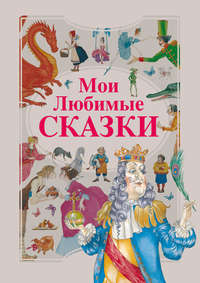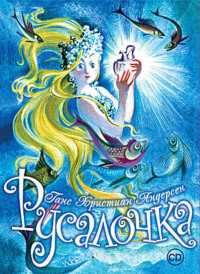 полная версия
полная версияPictures of Sweden
Early in the morning the nuns missed little Agda. What a screaming and shouting—the cloister is disgraced! The Abbess and Michael the merchant swore that vengeance and death should reach the fugitives. Lindkjöping's severe bishop, Hans Brask, fulminated his ban over them, but they were already across the waters of the Vettern; they had reached the shores of the Venern, they were on Kinnakulla, with one of Oluf's friends, who owned the delightful Hellekis.
Here their marriage was to be celebrated. The guests were invited, and a monk from the neighbouring cloister of Husaby, was fetched to marry them. Then came the messenger with the bishop's excommunication, and this—but not the marriage ceremony—was read to them.
All turned away from them terrified. The owner of the house, the friend of Oluf's youth, pointed to the open door and bade them depart instantly. Oluf only requested a car and horse wherewith to convey away his exhausted Agda; but they threw sticks and stones after them, and Oluf was obliged to bear his poor bride in his arms far into the forest.
Heavy and bitter was their wandering. At last, however, they found a home: it was in Guldkroken, in West Gothland. An honest old couple gave them shelter and a place by the hearth: they stayed there till Christmas, and on that holy eve there was to be a real Christmas festival. The guests were invited, the furmenty set forth; and now came the clergyman of the parish to say prayers; but whilst he spoke he recognised Oluf and Agda, and the prayer became a curse upon the two. Anxiety and terror came over all; they drove the excommunicated pair out of the house, out into the biting frost, where the wolves went in flocks, and the bear was no stranger. And Oluf felled wood in the forest, and kindled a fire to frighten away the noxious animals and keep life in Agda—he thought that she must die. But just then she was stronger of the two.
"Our Lord is almighty and gracious; He will not leave us!" said she. "He has one here on the earth, one who can save us, one, who has proved like us, what it is to wander amongst enemies and wild animals. It is the King—Gustavus Vasa! He has languished like us!—gone astray in Dalecarlia in the deep snow! he has suffered, tried, knows it—he can and he will help us!"
The King was in Vadstene. He had called together the representatives of the kingdom there. He dwelt in the cloister itself, even there where little Agda, if the King did not grant her pardon, must suffer what the angry Abbess dared to advise: penance and a painful death awaited her.
Through forests and by untrodden paths, in storm and snow, Oluf and Agda came to Vadstene. They were seen: some showed fear, others insulted and threatened them. The guard of the cloister made the sign of the cross on seeing the two sinners, who dared to ask admission to the King.
"I will receive and hear all," was his royal message, and the two lovers fell trembling at his feet.
And the King looked mildly on them; and as he long had had the intention to humiliate the proud Bishop of Lindkjöping, the moment was not unfavourable to them; the King listened to the relation of their lives and sufferings, and gave them his word, that the excommunication should be annulled. He then placed their hands one in the other, and said that the priest should also do the same soon; and he promised them his royal protection and favour.
And old Michael, the merchant, who feared the King's anger, with which he was threatened, became so mild and gentle, that he, as the King commanded, not only opened his house and his arms to Oluf and Agda, but displayed all his riches on the wedding-day of the young couple. The marriage ceremony took place in the cloister church, whither the King himself led the bride, and where, by his command, all the nuns were obliged to be present, in order to give still more ecclesiastical pomp to the festival. And many a heart there silently recalled the old song about the cloister robbery and looked at Oluf Tyste:
"Krist gif en sadan AngelKom, tog båd mig och dig!"3The sun now shines through the open cloister-gate. Let truth shine into our hearts; let us likewise acknowledge the cloister's share of God's influence. Every cell was not quite a prison, where the imprisoned bird flew in despair against the window-pane; here sometimes was sunshine from God in the heart and mind, from hence also went out comfort and blessings. If the dead could rise from their graves they would bear witness thereof: if we saw them in the moonlight lift the tombstone and step forth towards the cloister, they would say: "Blessed be these walls!" if we saw them in the sunlight hovering in the rainbow's gleam, they would say: "Blessed be these walls!"
How changed the rich, mighty Vadstene cloister, where the first daughters of the land were nuns, where the young nobles of the land wore the monk's cowl. Hither they made pilgrimages from Italy, from Spain: from far distant lands, in snow and cold, the pilgrim came barefooted to the cloister door. Pious men and women bore the corpse of St. Bridget hither in their hands from Rome, and all the church-bells in all the lands and towns they passed through, tolled when they came.
We go towards the cloister—the remains of the old ruin. We enter St. Bridget's cell—it still stands unchanged. It is low, small and narrow: four diminutive frames form the whole window, but one can look from it out over the whole garden, and far away over the Vettern. We see the same beautiful landscape that the fair Saint saw as a frame around her God, whilst she read her morning and evening prayers. In the tile-stone of the floor there is engraved a rosary: before it, on her bare knees, she said a pater-noster at every pearl there pointed out. Here is no chimney—no hearth, no place for it. Cold and solitary it is, and was, here where the world's most far-famed woman dwelt, she who by her own sagacity, and by her contemporaries was raised to the throne of female saints.
From this poor cell we enter one still meaner, one still more narrow and cold, where the faint light of day struggles in through a long crevice in the wall. Glass there never was here: the wind blows in here. Who was she who once dwelt in this cell?
In our times they have arranged light, warm chambers close by: a whole range opens into the broad passage. We hear merry songs; laughter we hear, and weeping: strange figures nod to us from these chambers. Who are these? The rich cloister of St. Bridget's, whence kings made pilgrimages, is now Sweden's mad-house. And here the numerous travellers write their names on the wall. We hasten from the hideous scene into the splendid cloister church,—the blue church, as it is called, from the blue stones of which the walls are built—and here, where the large stones of the floor cover great men, abbesses and queens, only one monument is noticeable, that of a knightly figure carved in stone, which stands aloft before the altar. It is that of the insane Duke Magnus. Is it not as if he stepped forth from amongst the dead, and announced that such afflicted creatures were to be where St. Bridget once ruled?
Pace lightly over the floor! Thy foot treads on the graves of the pious: the flat, modest stone here in the corner covers the dust of the noble Queen Philippa. She, that mighty England's daughter, the great-hearted, the immortal woman, who with wisdom and courage defended her consort's throne, that consort who rudely and barbarously cast her off! Vadstene's cloister gave her shelter—the grave here gave her rest.
We seek one grave. It is not known—it is forgotten, as she was in her lifetime. Who was she? The cloistered sister Elizabeth, daughter of the Holstein Count, and once the bride of King Hakon of Norway. Sweet creature! she proudly—but not with unbecoming pride—advanced in her bridal dress, and with her court ladies, up to her royal consort. Then came King Valdemar, who by force and fraud stopped the voyage, and induced Hakon to marry Margaret, then eleven years of age, who thereby got the crown of Norway. Elizabeth was sent to Vadstene cloister, where her will was not asked. Afterwards when Margaret—who justly occupies a great place in the history of Scandinavia, but only comparatively a small one in the hearts—sat on the throne, powerful and respected, visited the then flourishing Vadstene, where the Abbess of the cloister was St. Bridget's grand-daughter, her childhood's friend, Margaret kissed every monk on the cheek. The legend is well known about him, the handsomest, who thereupon blushed. She kissed every nun on the hand, and also Elizabeth, her, whom she would only see here. Whose heart throbbed loudest at that kiss? Poor Elizabeth, thy grave is forgotten, but not the wrong thou didst suffer.
We now enter the sacristy. Here, under a double coffin lid, rests an age's holiest saint in the North, Vadstene cloister's diadem and lustre—St. Bridget.
On the night she was born, says the legend, there appeared a beaming cloud in the heavens, and on it stood a majestic virgin, who said: "Of Birger is born a daughter whose admirable voice shall be heard over the whole world." This delicate and singular child grew up in the castle of her father, Knight Brake. Visions and revelations appeared to her, and these increased when she, only thirteen years of age, was married to the rich Ulf Gudmundsen, and became the mother of many children. "Thou shalt be my bride and my agent," she heard Christ say, and every one of her actions was, as she averred, according to his announcement. After this she went to Niddaros, to St. Oluf's holy shrine: she then went to Germany, France, Spain and Rome.
Sometimes honoured and sometimes mocked, she travelled, even to Cyprus and Palestine. Conscious of approaching death, she again reached Rome, where her last revelation was, that she should rest in Vadstene, and that this cloister especially should be sanctified by God's love. The splendour of the Northern lights does not extend so far around the earth as the glory of this fair saint, who now is but a legend. We bend with silent, serious thoughts before the mouldering remains in the coffin here—those of St. Bridget and her daughter St. Catherine; but even of these the remembrance will be extinguished. There is a tradition amongst the people, that in the time of the Reformation the real remains were carried off to a cloister in Poland, but this is not certainly known. Vadstene, at least, is not the repository of St. Bridget and her daughter's dust.
Vadstene was once great and glorious. Great was the cloister's power, as St. Bridget saw it in the prospect of death. Where is now the cloister's might? It reposes under the tomb-stones—the graves alone speak of it. Here, under our feet, only a few steps from the church door, is a stone in which are carved fourteen rings: they announce that fourteen farms were given to the cloister, in order that he who moulders here might have this place, fourteen feet within the church door. It was Boa Johnson Grip, a great sinner; but the cloister's power was greater than that of all sinners: the stone on his grave records it with no ordinary significance of language.
Gustavus, the first Vasa, was the sun—the ruling power: the brightness of the cloister star must needs pale before him.
There yet stands a stone outline of Vadstene's rich palace which he erected, with towers and spires, close by the cloister. At a far distance on the Vettern, it looks as if it still stood in all its splendour; near, in moonlight nights, it appears the same unchanged edifice, for the fathom-thick walls yet remain; the carvings over the windows and gates stand forth in light and shade, and the moat round about, which is only separated from the Vettern by the narrow carriage road, takes the reflection of the immense building as a mirrored image.
We now stand before it in daylight. Not a pane of glass is to be found in it; planks and old doors are nailed fast to the window frames; the balls alone still stand on the two towers, broad, heavy, and resembling colossal toadstools. The iron spire of the one still towers aloft in the air; the other spire is bent: like the hands on a sun-dial it shows the time—the time that is gone. The other two balls are half fallen down; lambs frisk about between the beams, and the space below is used as a cow-stall.
The arms over the gateway have neither spot nor blemish: they seem as if carved yesterday; the walls are firm, and the stairs look like new. In the palace yard, far above the gateway, the great folding door was opened, whence once the minstrels stepped out and played a welcome greeting from the balcony, but even this is broken down: we go through the spacious kitchen, from whose white walls, a sketch of Vadstene palace, ships, and flowering trees, in red chalk, still attract the eye.
Here where they cooked and roasted, is now a large empty space: even the chimney is gone; and from the ceiling where thick, heavy beams of timber have been placed close to one another, there hangs the dust-covered cobweb, as if the whole were a mass of dark grey dropping stones.
We walk from hall to hall, and the wooden shutters are opened to admit daylight. All is vast, lofty, spacious, and adorned with antique chimney-pieces, and from every window there is a charming prospect over the clear, deep Vettern. In one of the chambers in the ground floor sat the insane Duke Magnus, (whose stone image we lately saw conspicuous in the church) horrified at having signed his own brother's death-warrant; dreamingly in love with the portrait of Scotland's Queen, Mary Stuart; paying court to her and expecting to see the ship, with her, glide over the sea towards Vadstene. And she came—he thought she came—in the form of a mermaid, raising herself aloft on the water: she nodded and called to him, and the unfortunate Duke sprang out of the window down to her. We gazed out of this window, and below it we saw the deep moat in which he sank.
We enter the yeoman's hall, and the council hall, where, in the recesses of the windows, on each side, are painted yeomen in strange dresses, half Dalecarlians and half Roman warriors.
In this once rich saloon, Svanta Steenson Sture knelt to Sweden's Queen, Catherine Léjonhufved: she was Svanta Sture's love, before Gustavus Vasa's will made her his Queen. The lovers met here: the walls are silent as to what they said, when the door was opened and the King entered, and saw the kneeling Sture, and asked what it meant. Margaret answered craftily and hastily: "He demands my sister Martha's hand in marriage!" and the King gave Svanta Sture the bride the Queen had asked for him.
We are now in the royal bridal chamber, whither King Gustavus led his third consort. Catherine Steenbock, also another's bride, the bride of the Knight Gustavus. It is a sad story.
Gustavus of the three roses, was in his youth honoured by the King, who sent him on a mission to the Emperor Charles the Fifth. He returned adorned with the Emperor's costly golden chain—young, handsome, joyous and richly clad, he returned home, and knew well how to relate the magnificence and charms of foreign lands: young and old listened to him with admiration, but young Catherine most of all. Through him the world in her eyes became twice as large, rich, and beautiful; they became dear to each other, and their parents blessed their love. The love-pledge was to be drunk,—when there came a message from the King, that the young Knight must, without delay, again bear a letter and greeting to the Emperor Charles. The betrothed pair separated with heavy hearts, but with a promise of mutual inviolable troth. The King then invited Catherine's parents to come to Vadstene palace. Catherine was obliged to accompany them; here King Gustavus saw her for the first time, and the old man fell in love with her.
Christmas was kept with great hilarity; there were song and harp in these halls, and the King himself played the lute. When the time came for departure, the King said to Catherine's mother, that he would marry the young girl.
"But she is the bride of the Knight Gustavus!" stammered the mother.
"Young hearts soon forget their sorrows," thought the King. The mother thought so likewise, and as there chanced to come a letter the same day and hour from the young Knight Gustavus, Fra Steenbock committed it to the flames. All the letters that came afterwards and all the letters that Catherine wrote, were burnt by her mother, and doubts and evil reports were whispered to Catherine, that she was forgotten abroad by her young lover. But Catherine was secure and firm in her belief of him. In the spring her parents made known to her the King's proposal, and praised her good fortune. She answered seriously and determinedly, "No!" and when they repeated to her that it should and must happen, she repeatedly screamed in the greatest anguish, "No no!" and sank exhausted at her father and mother's feet, and humbly prayed them not to force her.
And the mother wrote to the King that all was going on well, but that her child was bashful. The King now announced his visit to Torpe, where her parents, the Steenbocks, dwelt. The King was received with rejoicing and feasting, but Catherine had disappeared and the King himself was the successful one who found her. She sat dissolved in tears under the wild rose tree, where she had bidden farewell to her heart's beloved.
There was merry song and joyous life in the old mansion; Catherine alone was sorrowful and silent. Her mother had brought her all her jewels and ornaments, but she wore none of them: she had put on her simplest dress, but in this she only fascinated the old King the more, and he would have that their betrothal should take place before he departed. Fra Steenbock wrested the Knight Gustavus's ring from Catherine's finger, and whispered in her ear: "It will cost the friend of thy youth his life and fortune; the King can do everything!" And the parents led her to King Gustavus, showed him that the ring was from the maiden's hand; and the King placed his own golden ring on her finger in the other's stead. In the month of August the flag waved from the mast of the royal yacht which bore the young Queen over the Vettern. Princes and knights, in costly robes, stood by the shore, music played, and the people shouted. Catherine made her entry into Vadstene Palace. The nuptials were celebrated the following day, and the walls were hung with silk and velvet, with cloth of gold and silver! It was a festival and rejoicing. Poor Catherine!
In November, the Knight Gustavus of the three roses, returned home. His prudent, noble mother, Christina Gyldenstjerne, met him at the frontiers of the kingdom, prepared him, consoled him, and soothed his mind: she accompanied him by slow stages to Vadstene, where they were both invited by the King to remain during the Christmas festival. They accepted the invitation, but the Knight Gustavus was not to be moved to come to the King's table or any other place where the Queen was to be found. The Christmas approached. One Sunday evening, Gustavus was disconsolate; the Knight was long sleepless, and at daybreak he went into the church, to the tomb of his ancestress, St. Bridget. There he saw, at a few paces from him, a female kneeling before Philippa's tomb. It was the Queen he saw; their eyes met, and Gustavus hastened away. She then mentioned his name, begged him to stay, and commanded him to do so.
"I command it, Gustavus!" said she; "the Queen commands it."
And she spoke to him; they conversed together, and it became clear to them both what had been done against them and with them; and she showed him a withered rose which she kept in her bosom, and she bent towards him and gave him a kiss, the last—their eternal leave-taking—and then they separated. He died shortly afterwards, but Catherine was stronger, yet not strong enough for her heart's deep sorrow. Here, in the bed-chamber, in uneasy dreams, says the story, she betrayed in sleep the constant thought of her heart, her youth's love, to the King, saying: "Gustavus I love dearly; but the rose—I shall never forget."
From a secret door we walk out on to the open rampart, where the sheep now graze; the cattle are driven into one of the ruined towers. We see the palace-yard, and look from it up to a window. Come, thou birch-wood's thrush, and warble thy lays; sing, whilst we recal the bitterness of love in the rude—the chivalrous ages.
Under that window there stood, one cold winter's night, wrapped in his white cloak, the young Count John of East Friesland. His brother had married Gustavus Vasa's eldest daughter, and departed with her to his home: wherever they came on their journey, there was mirth and feasting, but the most splendid was at Vadstene Palace. Cecilia, the King's younger daughter, had accompanied her sister hither, and was here, as everywhere, the first, the most beautiful in the chase as well as at the tournament. The winter began directly on their arrival at Vadstene; the cold was severe, and the Vettern frozen over. One day, Cecilia rode out on the ice and it broke; her brother, Prince Erik, came galloping to her aid. John, of East Friesland, was already there, and begged Erik to dismount, as he would, being on horseback, break the ice still more. Erik would not listen to him, and as John saw that there was no time for dispute, he dragged Erik from the horse, sprang into the water himself, and saved Cecilia. Prince Erik was furious with wrath, and no one could appease him. Cecilia lay long in a fever, and during its continuance, her love for him who had saved her life increased. She recovered, and they understood each other, but the day of separation approached. It was on the night previous that John, in his white cloak, ascended from stone to stone, holding by his silk ladder, until he at length entered the window; here they would converse for hours in all modesty and honour, speak about his return and their nuptials the following year; and whilst they sat there the door was hewn down with axes. Prince Erik entered, and raised the murderous weapon to slay the young Lord of East Friesland, when Cecilia threw herself between them. But Erik commanded his menials to seize the lover, whom they put in irons and cast into a low, dark hole, that cold frosty night, and the next day, without even giving him a morsel of bread or a drop of water, he was thrown on to a peasant's sledge, and dragged before the King to receive judgment. Erik himself cast his sister's fair name and fame into slander's babbling pool, and high dames and citizens' wives washed unspotted innocence in calumny's impure waters.
It is only when the large wooden shutters of the saloons are opened, that the sunbeams stray in here; the dust accumulates in their twisted pillars, and is only just disturbed by the draught of air. In here is a warehouse for corn. Great fat rats make their nests in these halls. The spider spins mourning banners under the beams. This is Vadstene Palace!
We are filled with sad thoughts. We turn our eyes from this place towards the lowly house with the grass-turf roof, where the little lamb crops the grass under the cherry-tree, which strews its fragrant leaves over it. Our thoughts descend from the rich cloister, from the proud palace, to the grassy turf, and the sun fades away over the grassy turf, and the old dame goes to sleep under the grassy turf, below which lie the mighty memorials of Vadstene.
THE PUPPET-SHOWMAN
There was an elderly man on the steam-boat, with such a contented face that, if it did not lie, he must be the happiest man on earth. That he indeed said he was: I heard it from his own mouth. He was a Dane, consequently my countryman, and was a travelling theatrical manager. He had the whole corps dramatique with him; they lay in a large chest—he was a puppet showman. His innate good-humour, said he, had been tried by a polytechnic candidate,4 and from this experiment on his patience he had become completely happy. I did not understand him at the moment, but he soon laid the whole case clearly before me; and here it is.
"It was in Slagelse," said he, "that I gave a representation at the parsonage, and had a brilliant house and a brilliant company of spectators, all young persons, unconfirmed, except a few old ladies. Then there came a person dressed in black, having the appearance of a student: he sat down amongst the others, laughed quite at the proper time, and applauded quite correctly; that was an unusual spectator!
"I was bent on ascertaining who he was, and then I heard that he was a candidate from the polytechnic school, who had been sent out to instruct people in the provinces. At eight o'clock my representation was over; the children were to go early to bed, and one must think of the convenience of the public.









